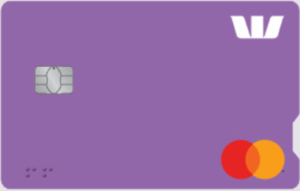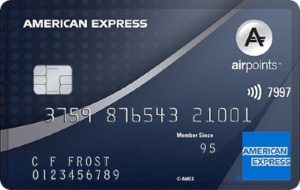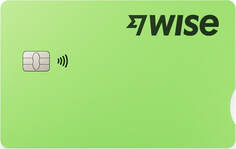Best travel credit cards
Discover the best travel credit cards in New Zealand to save on fees, earn rewards, and enjoy valuable travel perks on your next trip.

The breakdown
- Travel credit cards can help you save on foreign transaction fees, earn rewards like Airpoints or cashback, and unlock valuable perks such as travel insurance and lounge access.
- The best card for you depends on your priorities — whether it’s fee-free spending overseas, earning Airpoints, or getting extras like insurance and lounge access.
- Mixing and matching a travel credit card with a prepaid travel money card (like Wise) is a smart strategy for maximising value and flexibility while abroad.
Travel credit cards can be a powerful tool to make the most of your trips abroad. From earning Airpoints and cashback rewards to complimentary travel insurance and lounge access, the right card can save you money and enhance your travel experience. Also check out our separate guide on credit cards with airport lounge access.
This guide explains what to look for, reviews popular cards, and compares travel credit cards with travel money cards to help you choose the best option.
What is a travel credit card?
A travel credit card is a type of credit card designed for people who frequently travel, either domestically or internationally.
These cards often come with features that help you save money and get more value when spending abroad. This includes benefits like no foreign transaction fees, competitive currency conversion rates, and rewards tailored to travel such as Airpoints Dollars or cashback on travel-related purchases.
Rewards these types of cards can offer include:
- Airpoints or rewards points: Earn points on flights, accommodation, and everyday spending that can be redeemed for flights, upgrades, or other perks.
- Complimentary travel insurance: Covering medical emergencies, cancellations, lost luggage, and more.
- Additional perks: Airport lounge access, rental car insurance, concierge services, and sometimes purchase protection.
- Purchase protection: Many travel credit cards include cover for stolen or damaged goods.
Paying your balance in full each month means you can enjoy these benefits without paying interest. Be aware that some (but not all) travel cards charge foreign transaction fees on purchases made overseas, which can range from 1% to 2.5%.
Best travel credit cards
Westpac Fee Free Mastercard
The best budget travel card
The basics:
- Annual fee: $0
- Currency conversion fee: 0%.
- Interest rate: 12.90% p.a. on purchases
- Sign-up bonus: None
Perks:
- No international transaction fees: One of only two credit cards to offer this in New Zealand
- No annual account fee: Unlike the other NZ credit card that has no fee for international transactions, the Westpac Fee Free card also has no annual fee.
- Flexible spending: Can be added to Apple Pay, Google Pay and Garmin Pay
Why we like it:
This card is a standout option for travellers who want to save on fees — it’s one of the very few New Zealand credit cards that charges no foreign currency conversion fees.
Combine that with no annual fee and a low purchase interest rate, and you’ve got one of the best-value travel cards available. While it doesn’t earn rewards or offer travel insurance, its simplicity and cost-effectiveness make it ideal for budget-conscious travellers who still want to use a credit card abroad.
American Express Airpoints Platinum
Best for earning Airpoints and travel perks
The basics:
- Airpoints earn rate: 1 Airpoints Dollar per $70 spent
- Annual fee: $195
- Currency conversion fee: 2.5%
- Interest rate: 22.95% p.a.
- Sign-up bonus: 300 bonus Airpoints Dollars (new customers only, when you spend $1,500 in the first 3 months)
Perks:
- Insurance: Complimentary international and domestic travel insurance
- Airport lounge access: 4 complimentary lounge passes (2 Priority Pass + 2 Centurion Lounge per year)
- Smartphone cover:Smartphone screen repair insurance (up to $500)
- Status points: Earn 1 Status Point per $250 spent
- Koru: Discounted Air NZ Koru membership
- Flexible spending: Contactless payments, Apple Pay, Google Pay support
Why we like it:
highest Airpoints earn rate of any credit card in New Zealand, plus one of the most generous sign-up bonuses. It’s packed with perks that frequent flyers will appreciate — including travel insurance, airport lounge access, and extras like smartphone screen cover and Status Points.
Just be aware that it isn’t accepted everywhere, especially at smaller businesses, and the annual fee is on the higher side. Still, for regular travellers and Airpoints collectors, the value easily stacks up.
See our full review of the AMEX Airpoints Platinum credit card for more or see our guide to the best Airpoints credit cards.
Wise travel card
Best for low overseas spending fees (technically a prepaid money card)
Basics:
- Annual fee: $0 (but a $14 one-off fee applies for a physical card)
- Interest rate: Not applicable (prepaid)
Perks:
- No international transaction fees: You won’t be charged when you’re using the card abroad.
- Best exchange rate: Wise uses the real mid-market exchange rate (with a small variable fee starting from 0.39%)
- Free withdrawals: Free ATM withdrawals up to $350/month (1.75% fee applies after that)
- Flexible spending: Works with Google Pay and Apple Pay
- Mobile app: A mobile app to manage your money and convert currencies
Why we like it:
The Wise Travel Card is a prepaid money card, not a credit card, so you’ll only spend what you load onto it. It’s one of the cheapest ways to spend money overseas, thanks to no foreign transaction fees and the use of the mid-market exchange rate (which banks typically mark up).
While it doesn’t offer extras like insurance or rewards, Wise is ideal for savvy travellers who want low fees, strong FX rates, and digital-first convenience through its app and virtual card options.
Other contenders
While our top picks offer the best all-around value for travellers, a few other credit cards are worth mentioning, even if they didn’t quite make the cut.
The Flight Centre Mastercard is a strong option for loyal Flight Centre customers, with no international transaction fees and solid reward earnings on both local and overseas spending. However, its rewards can only be redeemed through Flight Centre New Zealand, limiting flexibility. It also comes with a $50 annual fee and a steep 24.99% interest rate, which may be a turn-off for some.
The TSB Platinum Mastercard is another solid contender, offering unlimited cashback (at a rate of $1 per $100 spent) and an impressive range of perks. These include domestic and international travel insurance, mobile phone insurance, and purchase protection, making it a versatile everyday and travel card.
That said, it does charge a 1.9% foreign currency conversion fee, which reduces its appeal for frequent overseas use. Its cashback rewards, while consistent, don’t quite match the potential of the American Express Airpoints Platinum.
Travel credit cards vs Travel money cards
When preparing your finances for travel, you might wonder whether to use a travel credit card or a travel money card. Both have distinct features, and understanding their differences can help you avoid fees and get the most value.
Travel credit cards
A travel credit card is a regular credit card designed with travel perks and rewards in mind. It allows you to pay for expenses upfront and pay the balance later, often interest-free if you clear the full amount by the due date.
Pros can include:
- Earn Airpoints, cashback, or other rewards on spending.
- Complimentary travel insurance and other travel perks.
- Useful for booking flights, hotels, and bigger expenses.
- Widely accepted globally.
Cons:
- Often charges foreign transaction fees (around 1–2.5%) on overseas spending.
- Risk of paying high interest if balances aren’t paid off monthly.
- Some annual fees can be high.
Travel money cards
A travel money card is a prepaid card where you load foreign currency before travelling. It’s similar to a gift card that you can use abroad.
Pros:
- Locks in exchange rates when you preload, avoiding rate fluctuations.
- Usually no foreign transaction fees on spending.
- Helps control your budget by limiting spending to preloaded funds.
- Widely accepted.
Cons:
- No rewards or points.
- No complimentary insurance or perks.
- You need to preload currency in advance.
Which should you use?
- Travel credit cards are ideal for larger purchases and earning rewards, especially if you pay off the balance each month and want insurance and perks.
- Travel money cards are great for everyday spending overseas where foreign transaction fees on credit cards can add up.
Many travellers combine both: use a travel credit card for bookings and emergencies, and a travel money card for day-to-day expenses.
For more on travel money cards, visit our full guide to the best travel money cards
Frequently asked questions
What’s the best travel credit card in NZ right now?
Right now, the Westpac Fee Free Mastercard is our top pick — it charges no international transaction fees and has no annual fee, making it ideal for travellers who want to avoid unnecessary costs.
That said, if you’re looking for rewards and travel perks, the American Express Airpoints Platinum is a great alternative. It offers one of the best Airpoints earn rates, travel insurance, lounge access, and a 300 Airpoints Dollar sign-up bonus — though it does come with a $195 annual fee and a 2.5% foreign transaction fee.
Your best option depends on what matters more to you: keeping costs down or maximising rewards and benefits.
Can I get free travel insurance with a credit card?
Yes, many mid-to-premium travel credit cards in New Zealand offer complimentary travel insurance. However, there are important conditions to be aware of.
Most cards require that you pay for your trip (or a portion of it) using the card for the insurance to be activated. Some policies also require you to book your return travel or cover a minimum spend threshold.
The insurance coverage often includes:
- Emergency medical treatment and evacuation
- Trip cancellation or disruption
- Lost or delayed baggage
- Rental car excess cover
Always read the Product Disclosure Statement (PDS) before travelling to understand what’s covered, what’s excluded, and how to make a claim.
Check out our guide to credit cards with complimentary travel insurance for more.
Do travel credit cards have foreign transaction fees?
Most travel credit cards in New Zealand do charge foreign currency conversion fees — typically between 1% and 2.5% of the transaction amount. This fee applies whenever you make a purchase overseas or buy something online in a currency other than NZD.
While these fees might seem small, they can add up quickly if you travel regularly or spend a lot in foreign currencies. For example, spending $5,000 overseas could cost you an additional $125 in conversion fees on a card with a 2.5% fee.
A few cards, like the Westpac Fee Free card offer no foreign transaction fees, which can make a noticeable difference in savings.
If you plan to travel frequently or spend a lot internationally, consider combining a rewards card (for booking flights and earning perks) with a travel money card for everyday spending to avoid these fees.
Do travel credit cards work overseas?
Yes, travel credit cards from New Zealand work internationally, provided they are on a widely accepted network like Visa, Mastercard, or American Express.
- Visa and Mastercard are accepted in most countries worldwide, at hotels, restaurants, shops, car rental desks, and ATMs.
- American Express is accepted in many countries but is not as widely used, especially in smaller towns or less-developed areas. However, it is generally accepted at major travel providers, airlines, and large hotel chains.
Before you travel, it’s a good idea to:
- Inform your bank that you’ll be overseas to avoid card blocks due to suspected fraud.
- Check whether your card charges foreign transaction or ATM withdrawal fees.
Have a backup payment method, such as a debit card or prepaid travel card, in case your primary card is lost or not accepted somewhere



